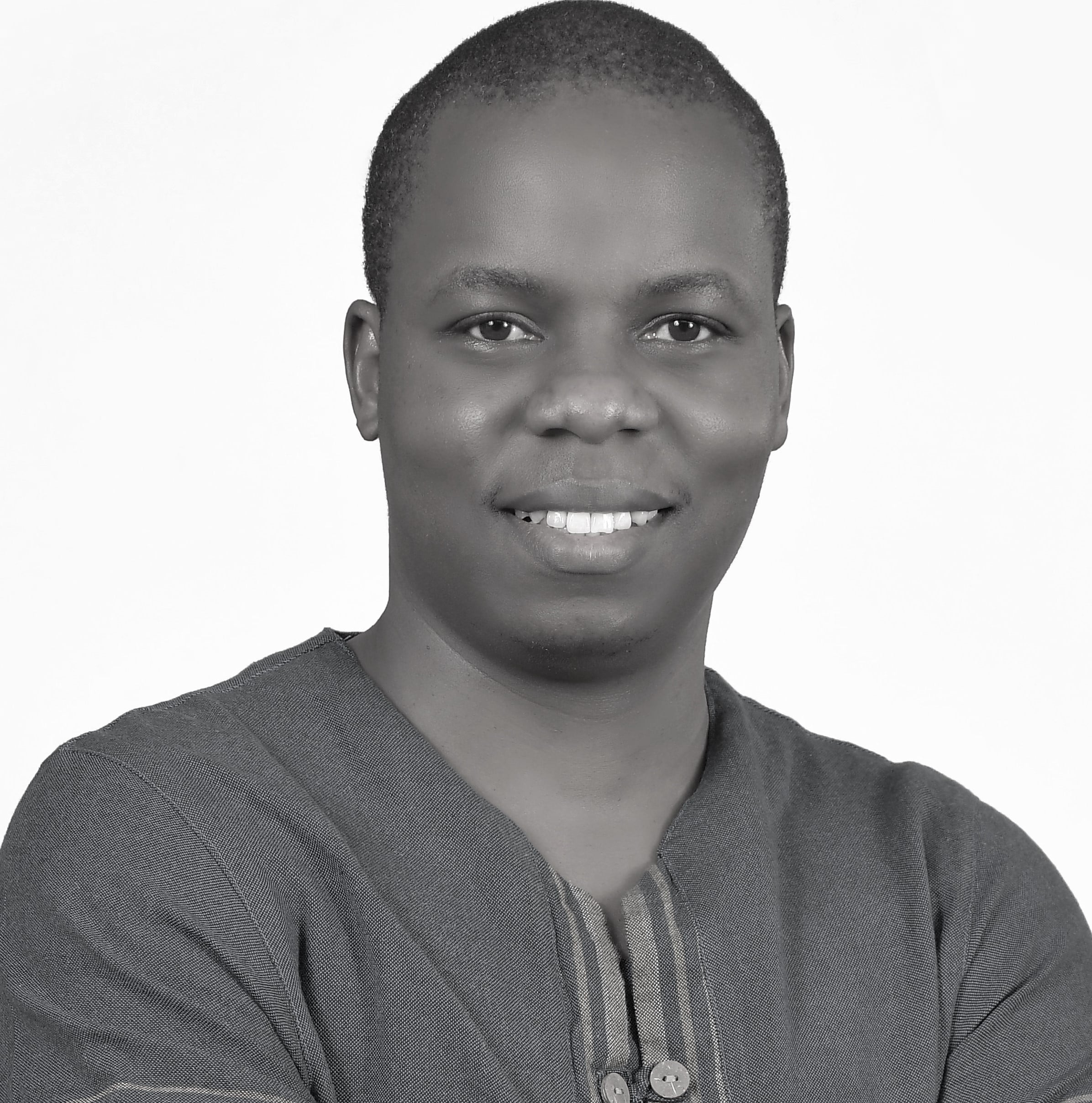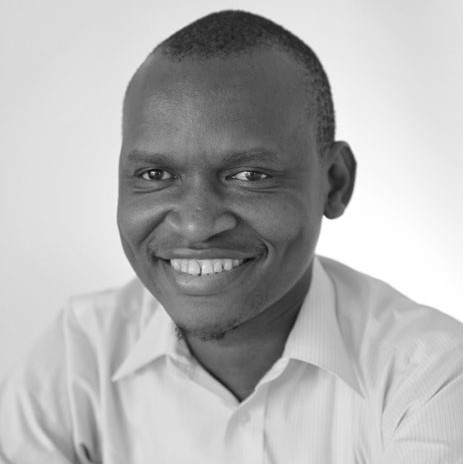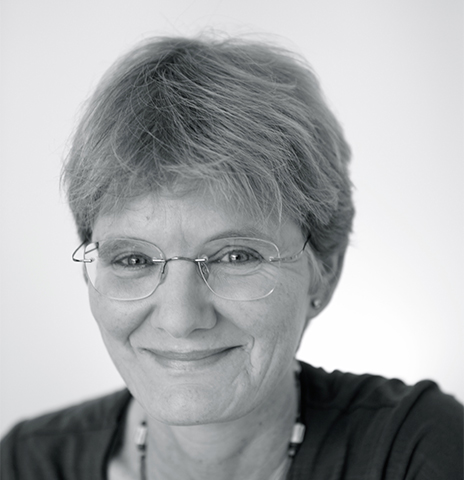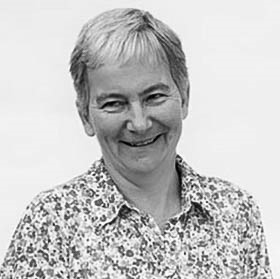
The Initiative to Develop African Research Leaders (IDeAL) is a high-quality training programme designed to develop outstanding young African scientists into world-class research leaders. It is hosted by KEMRI – Wellcome Trust Research Programme in Kenya. IDeAL is available to young researchers, from Undergraduate Research Attachments to Postdoctoral Fellowships, with the aim of keeping scientists at African institutions through a defined programme of recruitment, supervision and mentorship with the goal of establishing unique career paths for all students and fellows.
IDeAL is one of the 11 initiatives under DELTAS Africa (Developing Excellence in Leadership, Training and Science in Africa) funded by the African Academy of Sciences (AAS)’s and Alliance for Accelerating Excellence in Science in Africa (AESA) and supported by the New Partnership for Africa’s Development Planning and Coordinating Agency (NEPAD Agency) with funding from the Wellcome Trust and the United Kingdom government.
IDeAL Team comprises over 200 persons including postdoctoral fellows, students, interns, mentors, supervisors, and the secretariat.
For more details on the schemes supported under IDeAL, visit the Programmes Page.
IDeAL builds on previous capacity strengthening activities at the KEMRI – Wellcome Trust Research Programme. As illustrated in figure below capacity building at the Programme has gone through different phases. During the earliest phase, 1989-2008, the emphasis was on building core structures to support research and training including high quality laboratory, clinical, field and ICT infrastructure. As these core structures expanded there was a gradual increase in the number of local researchers training at Masters and PhD levels, albeit on an ad hoc basis. It eventually became clear that there was need to develop a coherent framework to manage and scale up research training activities at the Programme. This was achieved through the awarding of a Strategic Award amounting to 12 Million Pounds by the Wellcome Trust. The award supported research training activities from 2008 to 2015.

As a result of the Award capacity building activities in the Programme expanded markedly. In addition, the award facilitated the centralisation and harmonization of capacity building management by providing a secure financial base that enabled long term planning of career paths.
In brief, between 2008 and 2015, 52 students were support to undertake PhDs and also received a further one year Postdoctoral support. 32 of these are Postdoctoral Reseachers at KWTRP and elsewhere while 8 are lecturers in local Universities. 5 have already received Wellcome Trust Training Fellowships. 88 people were supported for Masters training either directly or through support leading to the successful application for external Masters Fellowships (e.g. the Wellcome Trust Masters Fellowship). We have provided internships to 172 recent Kenyan graduates. Over 30 of who have now progressed through the research training to Postdoctoral level. Majority of the rest are either research assistants or Masters students elsewhere.
Importantly, work supported by the SA has contributed to development of a number of health policies and practice guidelines in Kenya and Globally particularly for prevention and treatment of early childhood illnesses. In addition, it has been presented in over 200 conferences and resulted in over 300 peer-reviewed publications (>150 first author papers – >50 in journals with an Impact Factor of >4, and > 150 non-first author papers – >30 in journals with an Impact Factor of >4.
Vision
African-led research solving African and global health issues
Mission
To generate a critical mass of African Research Leaders
Objective
Attract – To attract young African to research
Train – To provide high quality research training
Retain – To support the retention of African researchers in the Continent
Nurture – To nurture emerging African research leaders

IDeAL lays a strong emphasis on quality mentorship. All fellows have at least one mentor, for the low level training the supervisors with support from the IDeAL team largely act as the mentors. Each PhD fellow has two sets of mentors: the Studentship Monitoring and Advisory Committee (SMAC) which comprises of 3 people, two of whom are experts in the student’s area of study and a 3rd Party Monitor who provides pastoral support to the student. In addition all the students can access a further pool of 4 career mentors who have extensive knowledge and experience in the academic and research career landscape in the region.


Prof. James Nokes
 Email : JNokes@kemri-wellcome.org
Email : JNokes@kemri-wellcome.org Current Mentees
Past Mentees
James Nokes is Professor of Infectious Disease Epidemiology at the School of Life Sciences, University of Warwick. Since 2001 he has been based full time at the Wellcome Trust Major Overseas Programme, Kilifi coastal Kenya. James trained in Zoology (BSc) followed by a PhD in virus epidemiology. His principle interests are the transmission dynamics and control of human viral pathogens, including respiratory syncytial virus and rotavirus. The focus of his WT Senior Investigator Award is the integration of epidemiological and genomic data to infer transmission pathways at different scales of interest from the household to countrywide. His research group is inter-disciplinary using molecular, phylogenetic, immunological, mathematical, statistical and field approaches to address key questions relating to respiratory and enteric virus persistence, transmission, and intervention.


Dr. Isabella Oyier
Isabella completed her PhD in 2006 at the Liverpool School of Tropical Medicine and Hygiene on a Gates Malaria Partnership scholarship, in molecular and cell biology of Plasmodium falciparum. The project focused on the molecular characterization of the endocytic marker Rab5 in the parasite. She then joined the KEMRI Wellcome Trust Research Programme (KWTRP) on a 3 year postdoctoral research position working on studies of natural selection in Plasmodium falciparum merozoite antigen genes, with Prof Kevin Marsh and Dr David Conway. During this project she was involved in establishing the capillary sequencing facility at the unit and began to develop her career in the molecular epidemiology of malaria. She was awarded a 2 year re-entry grant from the Malaria Capacity Development Consortium (MCDC) in 2009 to conduct a longitudinal study on the genetic diversity of merozoite antigens. In 2012 she extended her interest to the genetic diversity of known human erythrocyte receptors involved in the invasion of the merozoite and conducted this work under an 18 month MCDC Initiative award. She is also carried out research on the temporal variation in malaria drug resistance markers in collaboration with Dr. Colin Sutherland at the London School of Hygiene and Tropical Medicine. She is based at the Centre of Biotechnology and Bioinformatics (CEBIB), University of Nairobi (UON), since 2011. Isabella was awarded a Wellcome Trust Intermediate Research Fellowship in 2016 to investigate the impact of polymorphisms on Plasmodium falciparum merozoite invasion of erythrocytes and on immune evasion. She continues to conduct studies on antimalarial resistance.


Prof. Edwine Barasa
Edwine is the director of the Nairobi Programme of the KEMRI-Wellcome Trust Research Programme and also heads the Programme’s Health Economics Research Unit (HERU). Edwine is also a Visiting Professor of Health Economics at the University of Oxford. He has a PhD in health economics (University of Cape Town), a masters degree in health economics (University of Cape Town), and a bachelors degree in Pharmacy (University of Nairobi). Edwine’s research interests include health financing; equity and efficiency analysis in healthcare; economic evaluation of healthcare interventions; measuring health systems’ performance; and health system governance. Edwine has several years of experience of practice, advisory, and conducting health economics and financing research in Kenya and in the broader Sub-Saharan African region. He provides health financing advisory to the Kenya Ministry of Health with his latest roles including appointments by the Minister of Health to the taskforce for the reform of the National Hospital Insurance Fund (NHIF) and Kenya Health Benefits Advisory Panel. At the regional level, his latest appointments include as a member of the advisory board of the Africa CDC’s Health Economic Unit, and as co-chair of the Africa Universal Health Coverage Commission. He also provides health financing technical advisory support to several international development organizations, including the World Bank and the World Health Organization (WHO), focusing on the broader Sub-Saharan African region including Kenya, Ghana, Somalia, Malawi, Madagascar, Uganda, Rwanda, Sudan, South Sudan, Mozambique, and Egypt.


Dr. Benjamin Tsofa
Dr Tsofa is the Center Director for the KEMRI Centre for Geographic Medical Research – Coast. Tsofa trained in Dental Surgery at the University of Nairobi, and in Leadership and Management at KIA and MSH. He moved to Kilifi in 2004 as a clinical dentist, was appointed Deputy Hospital Superintendent in 2005, and then as District Medical Officer of Health for Kilifi District in 2006. As DMOH, working closely with Prof Marsh and Dr Peshu, he set up the KEMRI/MOH District Managers group and drafted the Programme’s MOH engagement policy guidelines. Tsofa took study leave from the Ministry and joined the Programme in April 2009 to coordinate the interactions of the Programme and the two ministries of health in Kenya.


Dr. Martha Mwangome
Affiliation(s)
Martha is currently working at KEMRI/Wellcome Trust Research Programme in a Post-Doctoral research position in the Nutrition assessment and Intervention research group led by Dr. James Berkley. She has a Master’s degree in Global Health Sciences from University of Oxford, UK and a PhD degree in nutrition epidemiology from the London School of Hygiene and Tropical Medicine (LSHTM), UK. Her thesis focused on anthropometric assessment of infants under 6 months, evaluating the potential of using the mid-upper arm circumferences (MUAC) in diagnosing acute malnutrition within this age group. Altogether she has 10 years working experience in public health nutrition research in Africa. Her work has largely focused on studying undernutrition in African children aged below 6 months old and has employed both qualitative and quantitative methods of data collection and analysis. Her interests are in identifying and testing novel and cost-effective approaches to assessment, prevention and treatment of acute malnutrition in infants and young children in Africa. Emerging interests in nutrition in emergency settings and the double burden of malnutrition among the urban poor.


Dr. Etienne de Villers
Etienne de Villiers is a Principal Investigator in Nuffield Department of Clinical Medicine, University of Oxford and has been employed since 2012 to establish a Bioinformatics and Genomics platform at KEMRI-Wellcome Trust Research Programme in Kilifi, Kenya. He graduated from Stellenbosch University in South Africa with a M.Sc. in Biochemistry, and was appointed Researcher and later, Senior Researcher at the Agricultural Research Council – Onderstepoort Veterinary Institute in South Africa in 1992. He received his Ph.D. in Molecular Biology from Utrecht University, The Netherlands in 2001. He is a molecular biologist by training that developed an interest in computing and ventured into the area of bioinformatics and has an interest in the application of bioinformatics to develop vaccines and diagnostics for orphan diseases of both livestock and now humans. At Onderstepoort Veterinary Institute he was part of the team that sequenced the first bacterial genome in Africa (Ehrlichia ruminantium) and in 2002 he accepted a Postdoctoral Scientist position at the International Livestock Research Institute, Nairobi, Kenya to establish a bioinformatics unit to support the Theileria parva genome-sequencing project in collaboration with The Institute of Genomic Research (TIGR) to develop a vaccine against East Coast Fever. In 2003 he was appointed as scientist and Bioinformatics Group Leader at the ILRI-BecA platform. He is actively involved in capacity building in bioinformatics in East and central Africa and has introduced several hundred students to the subject. He currently has an appointment as Adjunct Associate Professor at Pwani University, Department of Public Health and is executive board member of EMBnet, The Global Bioinformatics Network.


Dr. Dorcas Kamuya
Affilliation(s):
Dorcas is a post-doctoral Researcher in Ethics and Community Engagement on the Global Bioethics Network at the Ethox Centre, University of Oxford. She is primarily based at the KEMRI Wellcome Trust (KWTRP), Kenya and works across the UK and the five Wellcome Trust’s Major Overseas Programmes (MOPs) in Kenya, Thailand, Malawi, Vietnam, and South Africa. Her roles include facilitating the strategic development of community engagement activities at KWTRP; coordinating Global Bioethics Network activities aimed at sharing of expertise in community engagement across the MOPs; and developing and leading a research programme around the evaluation of community engagement. Her research interests include ethical implications of community engagement processes in international collaborative research in developing countries; exploring drivers of CE in health research; and ethical and practical challenges and dilemmas for interface research staff. Dorcas’s previous role, as the Community Liaison Manager, included setting-up mechanisms for engaging with over 260,000 residents often involved in health research, strengthening collaborative partnerships between KWTRP and key health stakeholders, providing support to research interface staff (especially fieldworkers), and carrying our action research around these activities. Dorcas has a PhD from the Open University, UK; a Masters in Public Health (health promotion) from London School of Hygiene and Tropical, and a BSc. in Agricultural Economics from Egerton University, Kenya.


Dr. Osman Abdullahi
Affiliations:


Prof. Caroline Jones
Current Mentees
Past Mentees
Affiliation(s):
Caroline Jones, a senior social scientist, joined the KEMRI-Wellcome Trust Research Programme in Kilifi from the London School of Hygiene and Tropical Medicine in February 2010. With a background in medical anthropology her research over the past 15 years has focused on treatment seeking and preventive behaviors for malaria and the factors that influence provider practices in sub-Saharan Africa. More recently she has been looking at the implement ability and sustainability of public health interventions, focusing on issues relating to social relationships, organizational structure and management and leadership. Research capacity strengthening and the promotion of the appropriate use of high quality social science research in the development and implementation of public health policy are major concerns underpinning much of her work. A key role in her current position is to contribute to building Kenyan and regional expertise to develop and lead such research.


Dr. Emelda Okiro
Emelda has over 15 years of professional experience in Epidemiology and Public health and heads the Population health unit. She has worked for the Bill and Melinda Gates foundation, Philips Research Africa and also worked with several partners including PMI and ICF Macro.
Emelda returned to the KEMRI Wellcome Trust Research Programme in October 2016 from a Senior Health Scientist position at Philips Research Africa. She is leading the Population Health unit and Research theme within the Programme which aims to understand changing epidemiology of malaria, understand the determinants of health transitions and vulnerabilities at fine scales a major component of which is malnutrition in Kenya and across Africa, and to embed the use of data for decision-making by national ministries.
Her current work focuses on exploring the spatial heterogeneity of child survival across Kenya using multiple survey data to map and explore the Spatial, Social and Environmental determinants of childhood mortality. Emelda has previously worked on the measurements of trends of P. falciparum burden across sites of varying malaria endemicities in Africa and on evaluating the impact of scaled malaria control interventions and supporting regional Ministries of Health in Uganda, Malawi and Kenya. At the Health Metrics and Evaluation (IHME), University of Washington, Seattle Emelda worked on identifying determinants of cost-effective anti-retroviral treatment programs in Kenya, Uganda and Zambia.
During her academic research career, she has been awarded two internationally competitive Wellcome Trust Research Fellowships. Emelda is widely published and has a Bachelor’s degree in Chemistry and Biochemistry from Egerton University, Kenya and a PhD in Epidemiology through the Open University – UK in collaboration with Warwick University, UK.


Prof. Imelda Bates
Affiliation(s):
Liverpool School of Tropical Medicine, UK
Research
Imelda’s current research activities focus on anaemia and blood transfusion systems in LMICs particularly on evidence to improve the supply and use of blood for transfusion. She has also established an expanding and vibrant Capacity Research Unit which is at the forefront of research into how to design, measure and evaluate programmes to strengthen research capacity and laboratory systems in LMICs.
Teaching
Imelda is a member of LSTM’s Learning and Teaching Committee. She is Course Director for the innovative and highly successful Diploma in Project Design and Management which was established in Ghana in 2003 to increase multi-disciplinary institutional research capacity. She also teaches on many of LSTM’s on-site courses including Diploma and Masters programmes and the Consultancy course. She has supervised many successful PhD and Masters students.


